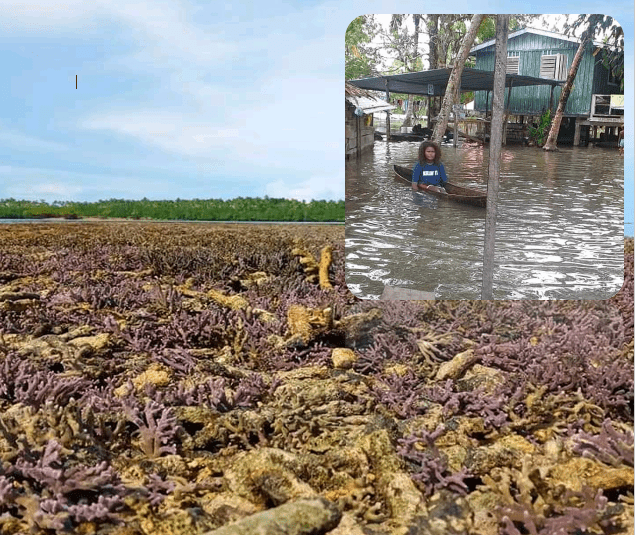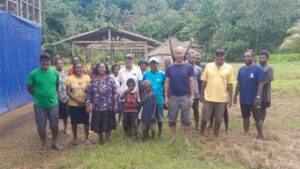BY JOHN HOUANIHAU
TA’ARUTONA village in the lagoon of West Are ‘are, Malaita province is now faced with an extreme threat from sea-level rise, a resident of the low lying island, Nelson Kohia told Environment Media.
“As I rest in my house today, I decided to look at the recent photos depicting the threat of sea-level rise due to the effects of Climate Change on my small island; and it’s a worrying feeling to witness my little island home gradually sinking,” Nelson said in a recent interview.
Pointing out that “from January this year up until now, I observed extreme changes,” he noted that “the sea-rise and coastal erosion is flooding the island – a sign that troubles my mind and heart”.
The 50-year-old recalled that the islanders have lived and enjoyed the natural landscape of the island for hundreds of years without experiencing such devastation caused by the effects of Climate Change.
“But now the island can be described as either sinking or floating with the sea level rise.
“The rising sea levels are contaminating the fresh-water, swamp food crops with seawater and is washing away parts of the island.
“The island is also subjected to extreme low tides which often exposed the coral reefs that resulted in coral bleaching – it has affected our fishing grounds and above all the food security of the island.
“Now I realize before my eyes what the evil high tides had done, sinking my little island. I was shocked because I have never witness such damage during my teenage days on the island,” Nelson added.
In response to the damage caused by the sea-rise and coastal erosion on the island, he said now he and other members of the community are doing whatever necessary to save their island.
“In order to keep the island afloat, we are now collecting chunks of dead coral stones from the sea to build high-rise compact stone walls along the island’s coastline.
“The idea is to stop the movement of sea tides or water from flooding our communities living on the island,” he said.
Other island dwellers have migrated to the region’s mainland, whilst others have opted to stay on the island and simply find other alternatives to keep the island afloat.




